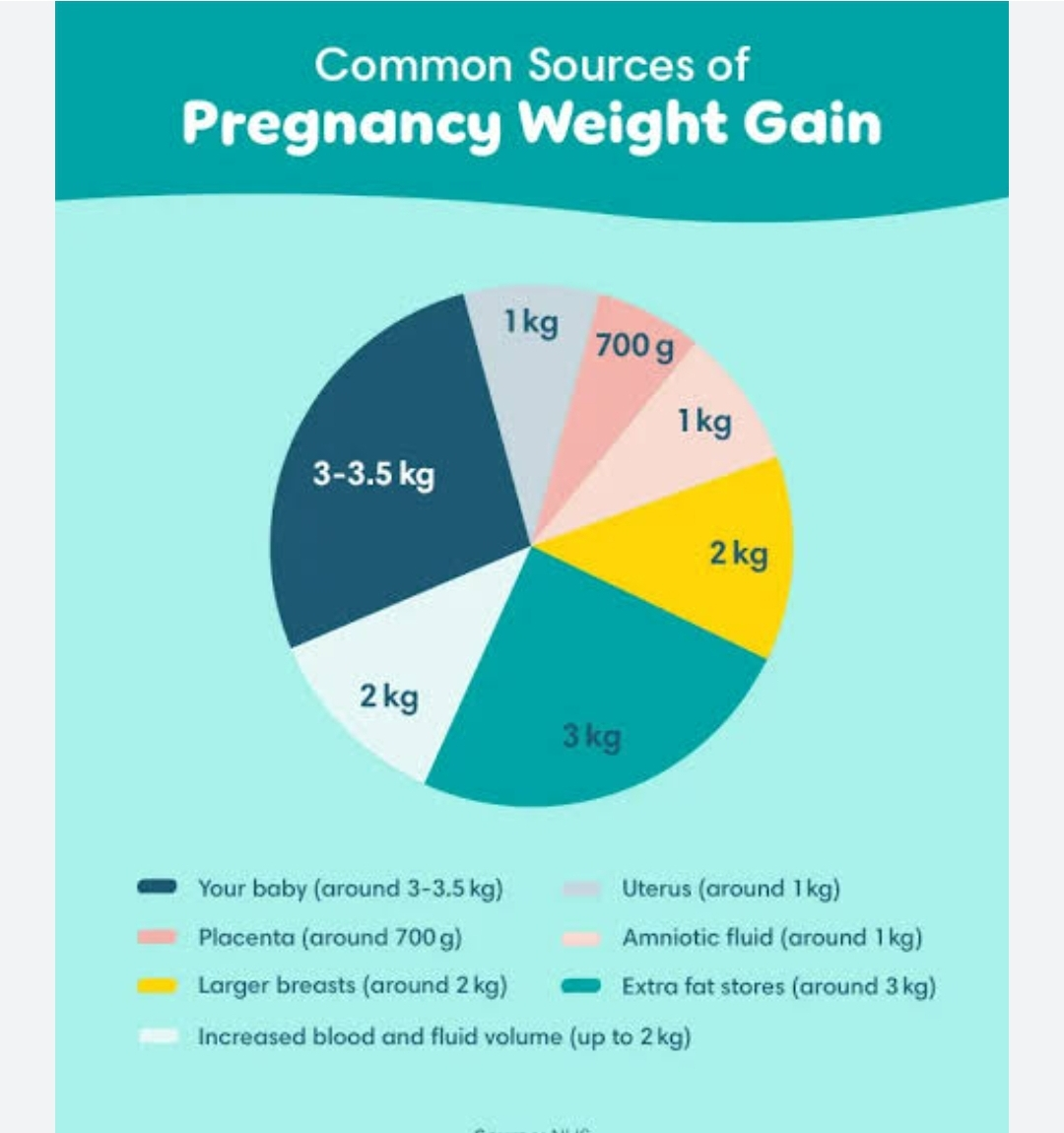
Weight gain during pregnancy is a normal and important part of the process, as it supports the growth and development of the baby and helps prepare the mother's body for childbirth. However, the amount of weight gained can vary depending on several factors, including the woman's pre-pregnancy weight, overall health, and whether she is carrying one or more babies (twins, for example). Here’s a general guideline on weight gain during pregnancy:
1. General Recommendations by Pre-pregnancy BMI:
Underweight (BMI 18.5): 28-40 pounds (12.5-18 kg)
Normal weight (BMI 18.5–24.9): 25-35 pounds (11.5-16 kg)
Overweight (BMI 25–29.9): 15-25 pounds (7-11.5 kg)
Obese (BMI 30): 11-20 pounds (5-9 kg)
2. Breakdown of Weight Gain:
Weight gain is not all fat. It is distributed in several ways:
Baby: About 7-8 pounds (3.2-3.6 kg)
Placenta: About 1-2 pounds (0.45-0.9 kg)
Amniotic fluid: About 2 pounds (0.9 kg)
Increased blood volume: About 3-4 pounds (1.4-1.8 kg)
Breast tissue: About 1-3 pounds (0.45-1.4 kg)
Uterus enlargement: About 2 pounds (0.9 kg)
Fat stores: The remainder of the weight gain
3. Weight Gain Patterns:
In the first trimester, weight gain is typically minimal, ranging from 1-5 pounds (0.5-2.3 kg), as the baby is still small.
In the second and third trimesters, weight gain increases more significantly, especially in the last few months. The baby and other organs grow rapidly.
4. Factors Affecting Weight Gain:
Multiple pregnancies (twins, triplets): More weight gain is expected.
Diet and physical activity: A balanced diet with healthy foods, and appropriate physical activity can help control excessive weight gain. It’s important to follow the advice of a healthcare provider.
Medical conditions: Conditions such as gestational diabetes or preeclampsia may affect weight gain patterns.
5. Managing Weight Gain:
Focus on nutrient-dense foods, including fruits, vegetables, whole grains, lean proteins, and healthy fats.
Engage in moderate exercise, such as walking, unless advised otherwise by a doctor.
Stay hydrated and avoid excessive intake of sugary or highly processed foods.
6. What Happens If Weight Gain Is Too Low or Too High?
Too little weight gain: May lead to insufficient fetal growth and preterm birth.
Excessive weight gain: Can increase the risk of complications like gestational diabetes, high blood pressure, or the need for a cesarean section.




